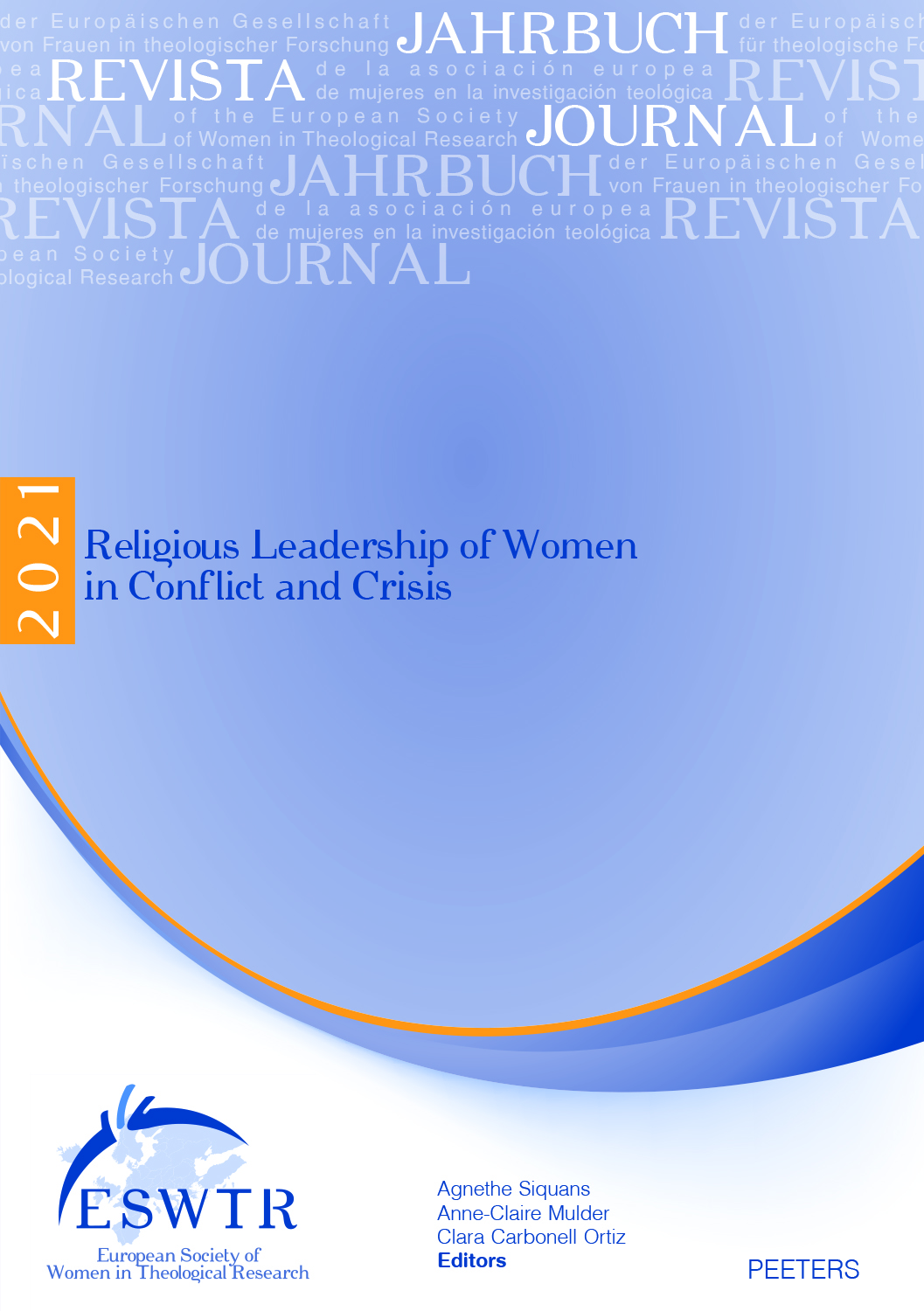 previous article in this issue previous article in this issue | next article in this issue  |

|
Document Details : Title: Revisiting the Sacrament of the Stranger Subtitle: Reflections on Migration, Invisibility, and Postcolonial Imagination Author(s): SUNA-KORO, Kristine Journal: Journal of the European Society of Women in Theological Research Volume: 28 Date: 2020 Pages: 37-63 DOI: 10.2143/ESWTR.28.0.3288481 Abstract : The article invites reflection on the theological, ethical, and theopolitical challenges that global migration presents to contemporary Euro-Atlantic theological inquiry in dialogue with feminist critiques as well as postcolonial and decolonial imaginaries from a diasporic perspective. Engaging the current ethical and theological exigencies of forced migration and displacement in the context of both Europe and North America, the article reflects on the erosion of human rights, racism, and intensifying invisibility of migrants and refugees as bearers of imago dei. This situation calls for novel postcolonial approaches to theological anthropology. The constructive reflections suggest that instead of unbridled glorification of sheer postmodern difference, the current situation rather invites a search for renewed 'spiritual senses' to foster intervisibility and a new poetics of creaturehood. A postcolonial poetics of creaturehood, as inspired by ideas of Rabbi Jonathan Sacks, Achille Mbembe, Gloria Anzaldua, Kelly Oliver, Shawn Copeland, and Hans Urs von Balthasar, can be envisioned in terms of a poetics and a theopolitics of similitude that manifests through paradoxical encounters with the Divine through the sacrament of the stranger. Der Artikel lädt zur Reflexion über theologische, ethische und theopolitische Herausforderungen ein, die die globale Migration an die euro-atlantische theologische Forschung in Dialog mit feministischer Kritik sowie postkolonialen und dekolonialen Vorstellungen aus einer Diasporaperspektive darstellt. Unter Einbeziehung der gegenwärtigen ethischen und theologischen Erfordernisse durch erzwungene Migration und Vertreibung im Kontext von Europa und Nordamerika reflektiert der Artikel über die Erosion der Menschenrechte, Rassismus und sich verschärfende Unsichtbarkeit von Migrant*innen und Flüchtlingen als Träger der imago dei. Die Situation ruft nach neuen postkolonialen Zugängen zur theologischen Anthropologie. Die konstruktiven Reflexionen legen nahe, dass die gegenwärtige Situation anstelle grenzenloser Glorifizierung der bloßen postmodernen Differenz vielmehr eine Suche nach erneuerten 'spirituellen Sinnen' einlädt, um Sichtkontakt und eine neue Poetik der Kreatürlichkeit zu fördern. Eine postkoloniale Poetik der Kreatürlichkeit, wie sie durch Ideen von Rabbi Jonathan Sacks, Achille Mbembe, Gloria Anzaldua, Kelly Oliver, Shawn Copeland und Hans Urs von Balthasar inspiriert ist, kann in Form einer Poetik und einer Theopolitik der Ähnlichkeit in den Blick kommen, die sich durch paradoxe Begegnungen mit dem Göttlichen durch das Sakrament des/der Fremden manifestiert. Este artículo invita a reflexionar acerca de los retos teológicos, éticos y teopolíticos que la migración global presenta para la investigación teológica euro-atlántica en diálogo con una crítica feminista así como con imaginarios poscoloniales y decolonialistas desde una perspectiva diaspórica. Engranando las actuales exigencias éticas y teológicas de la migración forzada y del desplazamiento en el contexto tanto europeo como norteamericano, el artículo reflexiona sobre la erosión de los derechos humanos, el racismo y la creciente invisibilidad de personas migrantes y refugiadas como portadores de imago dei. La situación demanda nuevas aproximaciones poscoloniales en la antropología teológica. Las reflexiones constructivas sugieren que, en lugar de una desatada glorificación de la diferencia posmoderna, la situación actual invite, por el contrario, a buscar 'sentidos espirituales' renovados para fomentar la intervisibilidad y una nueva poética de la condición de ser criaturas. Una poética poscolonial de esta condición, como aquella inspirada por las ideas del rabino Jonathan Sacks, Achille Mbembe, Gloria Anzaldua, Kelly Oliver, Shawn Copeland y Hans Urs von Balthasar pueden concebirse en términos de una poética y una teopolítica de la similitud que se manifiesta a través de encuentros paradójicos con lo Divino mediante el sacramento de la persona extranjera. |
 |
